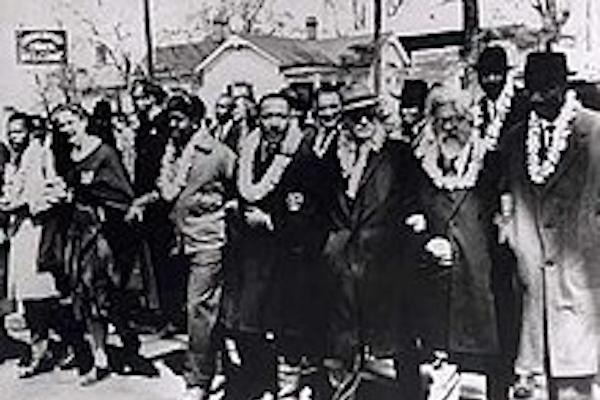Giants Among Men: Lowery, Vivian, and Lewis

As the editor of Spectrum: A Journal on Black Men I would be remiss if I didn’t offer a few words about the recent passing of Dr. Joseph Lowery, the Rev. C. T. Vivian, and Congressman John Lewis. The Rev. Dr. Lowery, Rev. Vivian, and Congressman Lewis of Georgia all transitioned within the last four months. I never had the pleasure of meeting Dr. Lowery or Mr. Lewis, but I knew Rev. Vivian—I had gotten to know him a little bit over the course of the last couple of years. I met the good reverend in the spring of 1998 when I was teaching at both Morehouse College and Georgia State University. On a spring day in April three of my colleagues and I decided to have lunch at the famous eatery called Pascals, the very venue in which Dr. King and others would convene, eat, and talk shop. As we were heading toward the entrance, a long black luxury car drove up and stopped just in time to allow us to cross the street. As we strode across, Dr. C. T. Cummings, an administrator at Georgia State University and retired US Army Colonel, looked at us and asked out loud, “is that C. T. Vivian?” I squinted my eyes, shielding them from the sun, and peered through the windshield. “Damn sure is,” I said louder than what was probably appropriate. As my colleagues hustled across the street, I turned toward the car and jogged toward it. As I approached the driver’s side door, the window descended in Grey Poupon style and Rev. Vivian stuck out of his hand and smiled. I extended my hand in return. “Good Afternoon Rev. Vivian,” I remember saying. “Good Afternoon young man, nice to see you again,” said Vivian. I’ve come to learn that such a response is not unusual from famous people to others on whom they’ve never laid an eye. We chatted for less than thirty seconds as my party stood patiently on the other side of the street as I chopped it up with one of the giants of the modern civil rights movement. Twenty years would past before we reconnected. I tracked him down the same way I track everyone down, using the snowball technique. I called one civil rights activist who put me in contact with another, who put me in contact with Rev. Vivian’s daughter, who put me in contact with her father. I reminded Rev. Vivian of that encounter, but it was one he did not recall, nor did I expect him to.
We had many conversations, most of which were about the struggle. On the subject of the modern civil rights movement, I learned a great deal; much of which I have never come across in any book written on the topic. As I have told my students many times, much of what I know about any subject I’ve learned from talking to the people who experienced it, thus who can talk expertly about what it is I am researching and studying. Those who marched, demonstrated, picketed, and strategized are in a better position to educate me than are writers and scholars who were barely alive when these developments unfolded. Lowery, who died in March, and Lewis and Vivian, who passed on the same day earlier this month, were key actors in the fight for racial equality. Their sacrifices are immeasurable. I have sense enough to understand that were it not for men like them, the opportunities that have availed themselves to me would be nonexistent. These are the kind of men on whose shoulders I stand, and rarely a day goes by that I don’t wonder whether or not I am making them proud. There is a generation of freedom fighters that is leaving us more quickly than I’d prefer. Of course, there is very little that can be done about that. John Lewis was only twenty-five years old the year of the Edmund Pettus Bridge March. At the time of his death, he was eighty. Both Lowery and Vivian were considerably older, yet all three, from what I’ve been told, lived full and meaningful lives. If my generation achieves a smidgen of what men like Lewis, Vivian, and Lowery accomplished, I think that is something of which all three men would be proud.
Judson L. Jeffries
